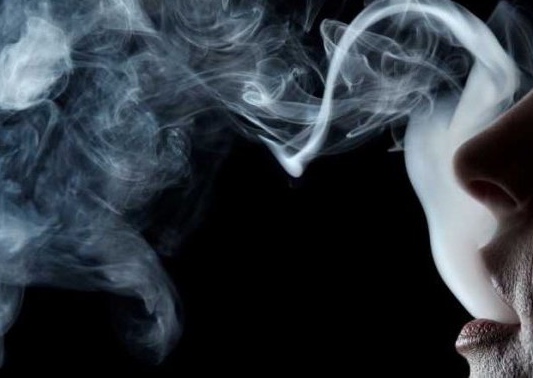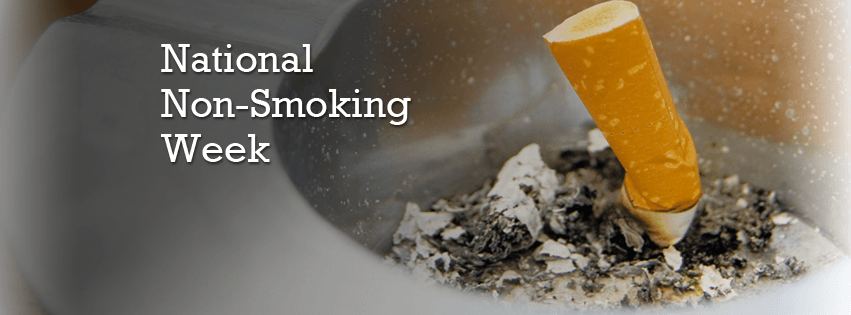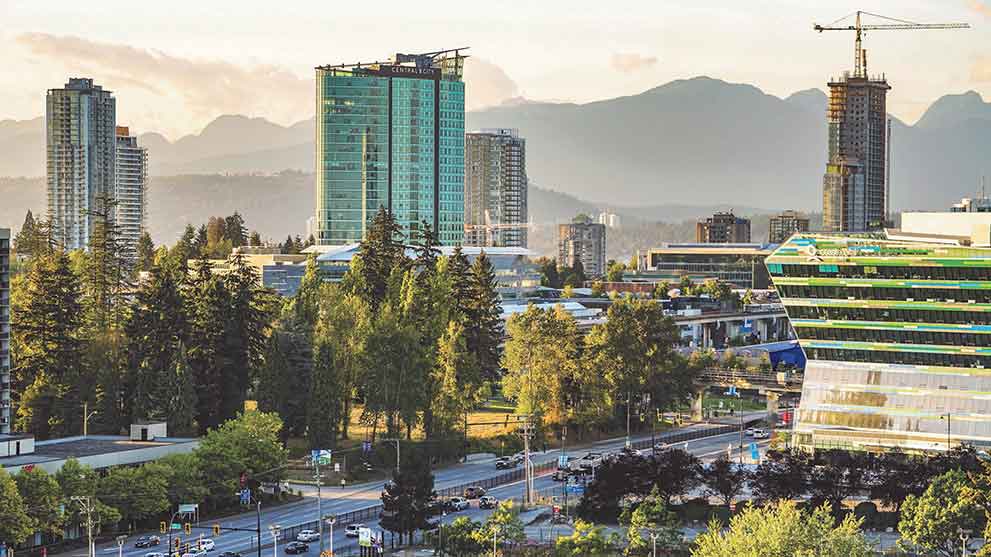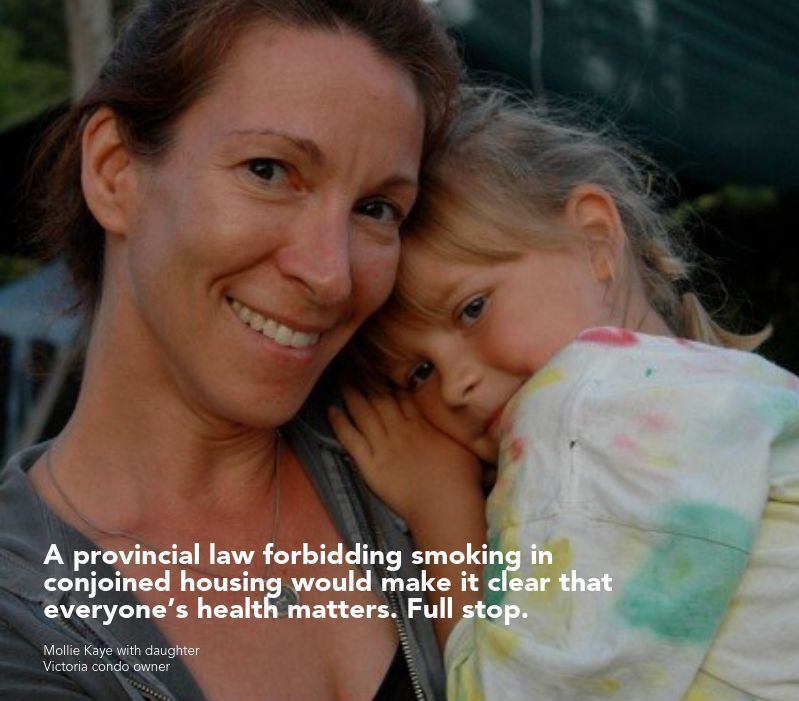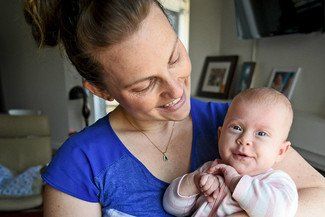November 20, 2023
November 14, 2023 - 'We have no rights': Couple seeks ban on secondhand smoke seeping in from neighbour's shared wall National Post: Sharon Kirkey Taes Leavitt and Peter Katz, Juno-recognized musicians, say it often feels 'unsafe' to be in their own home View video Taes Leavitt has a closet full of clothes that have a lingering cigarette stench. Her living room and bedroom often smell like an “ashtray,” the level of stale secondhand smoke hanging so heavy in the air it often wakes her and her partner, Peter Katz, at night. They don’t smoke, but their neighbour, with whom they share a common wall, does. The secondhand smoke wafting in from next door is making the lives of the Juno-recognized musicians and motivational speakers miserable, and they’re preparing to appeal to the City of Toronto to enact a bylaw preventing “home-to-home” transmission of secondhand smoke. “You have two young Ontario citizens who are being forced to live in a level of toxic smoke spread from a neighbour,” their submission to city council reads. “You have to do something immediately to resolve this danger.” They aren’t alone. Secondhand smoke wafting from one residence to another through walls, air ducts, cracked floors, plumbing and electrical systems, patios, balconies and other points of entry is a common problem across the country, said Rob Cunningham, a senior policy analyst at the Canadian Cancer Society. “It’s an important health issue and it needs a solution.” Ontario’s Smoke-Free Ontario Act, like other provincial laws, prohibits smoking and vaping in all enclosed workplaces and public places. People can’t smoke within nine metres of the entrance or exit of a public building. People can’t smoke in bars, restaurants or “select outdoor spaces.” Most hotel rooms, university dormitories and prisons — other places of “residence” — are also smoke-free. There are no laws, however, prohibiting smoking in private dwellings, though landlords and condominium and co-op boards may enact their own private no-smoking rules. Cunningham said that, in the same way that people can lodge a bylaw complaint about a neighbour making excessive noise — people are entitled to their “quiet enjoyment,” he said — “your neighbour shouldn’t be putting toxic, carcinogenic substances into your home. And that’s what’s happening.” But it’s a complex issue. How to ensure individual freedoms don’t conflict? What I do in my home is my business. ANTOINETTE CUOZZO, NEIGHBOUR Leavitt and Katz’s neighbour said she is entitled to do whatever she so wishes within in her own home. “What I do in my home is my business,” Antoinette Cuozzo said when reached by National Post. “I don’t hurt people. I don’t libel people, or anything else. All of this is stepping out of boundaries. This gaslighting stops,” she said, before hanging up. Katz agrees that people have the right to smoke. “But you’re not allowed to have your smoke enter people’s lungs against their will.” He was hospitalized with a lung condition in his 20s and still has chest pain from time to time that can be aggravated by smoke. He said he doesn’t wish Cuozzo any ill will. However, he’s been monitoring and recording air quality inside their west-end Toronto rowhouse during the on-and-off smoke drifts, using a device that measures particulate matter. “The machine is like a smart machine — it gives you messages,” Katz said. “Sometimes it says, ‘Get out of your house.’ Or ‘dangerous levels. Get outside.’ It just freaks out.” The dangers of secondhand smoke are well-known. Health Canada recently announced it will be printing “poison in every puff” and other warning labels on every individual cigarette. “It’s a weird situation,” said Katz. “There’s this entire movement of protecting people who don’t want to be exposed to smoke. “We actually have no rights in this situation, and we’re literally in our home.” The couple has spent thousands of dollars on air purifiers and filters, he said. They’ve politely appealed to Cuozzo several times to please smoke outside. It didn’t go well. Exasperated, in June they wrote to their local city councillor, whose office, while sympathetic to the couple’s plight, responded that there is likely little action the city can take, except perhaps having a letter drafted and dropped off at their neighbour’s house, “communicating the issues.” Under Leavitt and Katz’s proposed bylaw, people could lodge a complaint with Toronto Public Health or other such body. The alleged spread of smoke could be verified by an inspection visit of both residences, with tests done to measure particulate matter levels. Complainants could also submit a diary of air quality readings, downloaded to an app, that could be sent via email to the public health authority. If found that smoke, fumes or odours of any tobacco product are emitted from the interior of one unit to another, violators would be subjected to fines. “It would then be up to them to mitigate that their smoke is not entering anybody else’s living space,” Katz said. It's not just about us and our house — it's bigger than us. TAES LEAVITT, HOME OWNER Leavitt, one-half of the Juno-award-winning children’s music duo, Splash N’Boots, doesn’t get angry often; her texts and emails are sprinkled with heart emojis. But she and Katz are trying to have a baby. “This is my home, and it feels unsafe to be in my home,” she said. She sometimes wanders her neighbourhood, waiting for the smoke inside her house to clear. “It’s not just about us and our house — it’s bigger than us,” she said. “Can you imagine kids living in semi-detached houses or apartment buildings dealing with this?” According to Smoke-Free Housing Canada , a national website, the right to smoke isn’t enshrined in Canadian law. Smoking isn’t identified under provincial human rights laws as grounds for protection from discrimination, the website reads. “Just because someone exercises their freedom to smoke does not mean they have an absolute right to smoke.” Tobacco smoke doesn’t stay put. “It contaminates beyond the immediate location where it’s being produced,” moving through air ducts, floor cracks and crawlspaces, said Sarah Butson, co-chair of the Alliance for a Tobacco-Free Ontario and a Canadian Lung Association policy analyst. Secondhand smoke is what smokers breathe out and into the air, and the smoke that comes from a burning cigarette, cigar or pipe. It contains 70-plus known carcinogens, increases the risk of lung cancer and heart disease in otherwise healthy non-smokers and can aggravate symptoms for people with heart issues, allergies or breathing problems. It also increases the risk of sudden infant death syndrome. Pregnant mothers, babies, children — all can be at increased risk from secondhand smoke, “even from lower levels of exposure, especially if it is continuous,” said Dr. Murray Katz, Peter’s father. People have complained about pot-smoking neighbours or suddenly finding themselves sharing walls with crack cocaine users. Any product that combusts creates chemical reactions that produce toxins that pollute the air we breathe, Butson said. In June, a Washington, D.C., woman won her legal battle to stop a neighbour who lives in an adjoining home from smoking weed inside his home. As the Washington Post reported , the judge ruled that “public interest is best served by eliminating the smoking nuisance and the toxins that it deposits into the air, toxins that involuntary smokers have no choice but to inhale.” Last December, a tribunal in the Australian state of New South Wales ruled that secondhand smoke drifting from one unit to another in a beachfront apartment building constituted both a private nuisance and a hazard. “That is, that it is tortious conduct and a civil wrong which is unlawful.” In a small handful of cases in Canada, cases of non-smokers unwillingly exposed to drifting secondhand smoke in their homes have also been won on the premise of nuisance, according to the Non-Smokers Rights Association , “as well as breach of the covenant of quiet or peaceful enjoyment.” Leavitt and Katz could go to court, but it wouldn’t be quick or cheap. They don’t want to sell their house. “We are fully leveraged and invested in this home,” Katz, a Juno-nominated singer songwriter, wrote to his ward councillor. They recently spent $50,000 converting their garage into a studio. It would also be impossible to sell the house with a clear conscience “knowing what the new owners would be walking into,” he said. The house was a “hot mess,” a total fixer-upper when Leavitt purchased it in 2015. “I fell in love with it. It just had so much potential.” It’s located across the street from a park. She renovated before moving in, tearing down “a whole bunch of walls.” Pre-COVID, she travelled a lot for work. “I wanted a place that really felt like home when I do get there.” It’s not the sanctuary she’d hoped for. “I’ll just be sitting and having dinner and then suddenly … you can tell when it starts to get bad because the air filter starts going crazy, and you can smell it. It’s awful.” They have a cottage “in the middle of nowhere” that they can escape to in summer months, though not winter. “A lot of families don’t have that luxury,” Leavitt said. Their 110-year-old rowhouse has three units. The adjoining property on the other side of Cuozzo is owned and rented out by Marco Martins. When he bought the property a year-and-a-half ago, “there was an extremely strong smoke smell.” Martins assumed it was coming from a previous tenant who’d been living in the basement. “I didn’t think it could penetrate through the walls.” Martins washed down the plaster walls with a sanitizing cleanser, had the ducts blown out, installed a commercial grade HVAC odour-blocking system, spray-foamed air gaps in the front gable the three adjoining units share and turned on an ozone machine “for days and days” before his tenants moved in, to try to neutralize the smoke smell. “I’ve spent thousands of dollars trying to mitigate it. But every time I walk in there, there’s a stale-smoke smell.” He’s lived in the west-end Toronto neighbourhood, a blend of multi-residential units and single-family homes, all his life. “I’ve called the city, saying we’re having some issues,” Martins said. “They say there’s no bylaw in place. “This is what we’re up against.”
